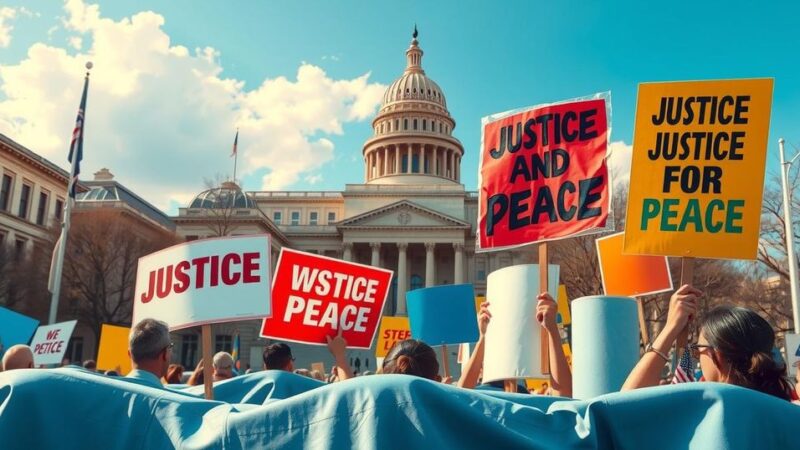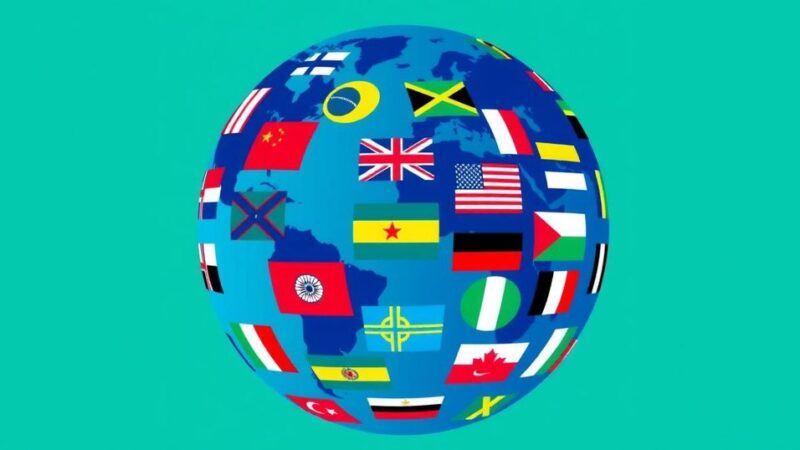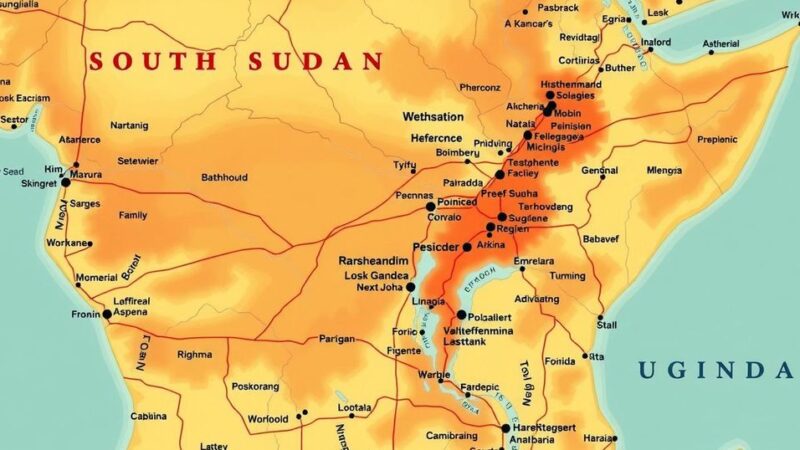Qatar’s Prime Minister has demanded the immediate withdrawal of Israeli forces from the UN buffer zone in Syria, calling their occupation reckless. He emphasized Qatar’s support for Syria’s recovery and rehabilitation efforts while advocating for the lifting of sanctions that hinder humanitarian assistance. The conversation around sanctions is ongoing, with upcoming discussions in the EU.
Sheikh Mohammed bin Abdulrahman bin Jassim Al Thani, the Prime Minister of Qatar, has called for the immediate withdrawal of Israeli forces from the UN-designated buffer zone in southern Syria. This statement was made during a press conference held in Damascus alongside Syrian leader Ahmed al-Sharaa, where they discussed the Israeli military presence following the ousting of Bashar al-Assad. Sheikh Mohammed condemned Israel’s actions near the Golan Heights as reckless, emphasizing the need for their prompt withdrawal.
Israeli troops recently occupied the buffer zone, a demilitarized area established under a UN-brokered ceasefire, amid ongoing military operations and airstrikes throughout Syria. The Israeli government has justified these actions as efforts to prevent weapons from reaching extremist groups, including Hayat Tahrir al-Sham (HTS). Al-Sharaa remarked that the presence of Iranian militias and Hezbollah had contributed to this Israeli advance into the Syrian region.
Sheikh Mohammed pledged Qatar’s support for Syria’s new government and infrastructure recovery, which has suffered extensive damage due to nearly 14 years of conflict. He indicated Qatar’s intention to assist with technical expertise to restore basic services, especially in the electricity sector, while extending goodwill towards future partnerships with Syrian authorities.
The Prime Minister also urged for the lifting of sanctions placed on Syria, arguing that such measures impede humanitarian support and recovery efforts. Sanctions were imposed by the United States and the European Union in response to allegations of human rights violations by the Assad regime since the conflict began in 2011. The U.S. Treasury has recently issued a six-month license allowing certain transactions with the Syrian government, which may facilitate basic human needs and humanitarian assistance, though sanctions remain in effect.
Discussions regarding the potential lifting of sanctions by the EU are anticipated to take place by the end of January, indicating a shift in approach towards engaging with Syria’s current administration.
The dynamics surrounding the Syrian conflict have shifted significantly since the ousting of long-time President Bashar al-Assad. Various nations, including Qatar, have started to reassess their roles in the region, particularly in terms of diplomatic relations and humanitarian support. Qatar’s position in urging Israel to withdraw from Syria aligns with its broader objective of fostering stability and supporting rehabilitation efforts in war-torn Syria. International sanctions imposed on Syria’s government continue to complicate recovery efforts. The UN-designated buffer zone established as part of the 1974 ceasefire has also become a focal point of military tensions between Israel and Syria, resulting in warfare that has prompted calls for international intervention and monitoring.
In conclusion, Qatar’s Prime Minister has unequivocally called for the withdrawal of Israeli forces from the Syrian buffer zone, labeling their presence as reckless. He reaffirmed Qatar’s commitment to supporting Syria in rebuilding its infrastructure and called for an end to sanctions that hinder recovery. As discussions on sanctions continue, there is a growing urgency for cooperative international efforts to stabilize the region and improve conditions for the Syrian populace.
Original Source: www.aljazeera.com






